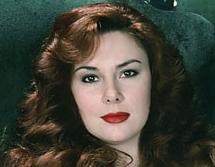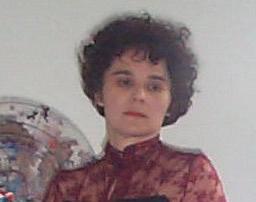
Myatt's Life:
The poetry presented of this Web-site is the creative work of a man
with an interesting history. His life, according to one source, is a
modern "odyssey".
All artistic creations should be judged on their merits, and while the life and former beliefs, political or otherwise, of the artist may be of interest, they should not cloud one's artistic judgment. In the majority of instances, while the artistic creations are remembered after the death of the artist, their personal beliefs and political opinions are long forgotten.
Outwardly, Myatt's Promethean quest is now generally known -
involving as it did,
among other things, a study, in the
Far East, of
Martial Arts; the violence of ultra-nationalist politics; periods as a
vagabond;
two terms of imprisonment for violence; personal involvement with
Islam, Buddhism, Taoism, Hinduism, Christianity, Paganism, the Occult;
and membership of a highly secret
military organization, set up by British government during the Cold
War, to
conduct sabotage and assassinations. In complete contrast, his interior
personal life is much less well-known.
It may have been that his first period as a vagabond, in the 1970's, was prompted, in part, by a series of ultimately unhappy romantic liaisons, one of which led to the young women in question moving abroad where she gave birth to Myatt's daughter. This series of events does seem to have inspired some of his early poetry, as did his first marriage, which failed when his wife ran off with a younger woman (who, incidentally, was the dedicatee of Myatt's translation of Sappho's poetry). His second marriage ended with the death, at the age of 39, of his wife from cancer. The failure of his third marriage led him to spend another period as a homeless vagabond, in the hills and Fells of Cumbria, a period which inspired him to produce more pagan poetry before he returned to writing about that second love of his life, women. For if there are two themes which consistently run through his poetry, they are Nature, and women. Indeed, he once remarked that "I often feel that some women embody the beauty, the numinosity, the joy, the sensuality, of Nature."

This love of women is especially evident in his short-story entitled
One
Connexion; in a manuscript he wrote over two decades ago - about a
relationship involving two women - to which he gave the title Breaking
the Silence Down, in many of his poems, and in several
of his letters to me:
So it was that I then, as now, remembered a wisdom of years ago, forgotten in the artificial turmoil of political, religious, plots, of chasing ideological schemes and promethean dreams. Remembered especially when I, only months ago, in her, my married lover's house, awoke and she, my new love, lay warm, naked and half-asleep beside me, our limbs, our bodies, our feelings, entwined, and there was no need to speak, to leave. We seemed one, then, as when our passion joined us and we would lie, wordless, looking, smiling, gently moving, touching, in that beautiful calmness of love. (A Learning: Hand written letter, by Myatt, addressed to JR Wright, dated Nearing the Winter Solstice; postmarked December 17 2002.)

It is my own, personal, view that, in order to understand Myatt
himself, we must look beyond the many journalistic clichés
written about him to his poetry, for much of this poetry is profoundly
autobiographical, and seems to express "the real Myatt" behind the
façade of the various political, religious and Occult
rôles he has assumed, and played, during the past four decades.
Myatt's Poetry:
It is one of the aims of Art to elevate us and raise us up and away
from the mundane world. The poetry of David Myatt is decidedly
non-political. If it can be categorized, it is "pagan", Nature-loving,
rather mystical, and empathic. It is also highly individualistic, not
to say romantic.
What we find expressed in much of this poetry is a profound desire
for a more natural and a more human way of life. We also discover, in
his poetry, a sensitive man, in love with Nature, who seems to enjoy
the company of women far more than the company of men,
and who finds:
There is much that is beautiful
But nothing that surpasses the beauty some women
Reveal
Through their eyes
(The Silent Wisdom)

It seems that his diverse peregrinations, adventures, travels, wanderings and involvements have inspired his diverse poetry, and it is therefore not surprising that some of his poems are about love, the joy of love, and the sorrow that often arises when love ends:
It was a calm night
Perfumed by moon
Which drew droplets of fractured
Light to my pillow and relief
To the majesty of her flesh
(Summer Love)
These are the moments of an exquisite silence
As we lie together on your sofa, holding, pressing
Our bodies together
As I, gently, stroke your face and hair
And you kiss each finger of my hand.
(One Exquisite Silence)
Only in passion did we glimpse in moments a beauty
Beyond -
As when, satiated within our lover's arms,
Our being relaxed to journey in defiance of our life
To where some gods were born
While rain played as rain played upon those panes of glass
And a Church clock tolled its ten amid the morning city noise
In her Apartment
When we who waited warm in bed should long ago
Have been upon our way to work.
(Only Relate)
This week will become the month of loss,
This month a toil endured
As when the weary soil, drought-kept,
Waits, waiting, to bring forth flowering joy from seeds,
Like memory, sown from tears that are earth's rain,
My pain.
(Such A Poem As This)
I have no sentence of undisputed meaning
To describe the feeling
As I entered to hear the organ playing Bach:
There was no Time
No century of belonging
Only a leaving in an inward implosion
As I stood, unaware of who or what I was.But she was real, this goddess
Who played with thin fingers
Creating in an instant a divinity
Of love
Her wraithe form almost swathed in black:
She looked up, once, as I sat astounded,
And smiled in concentration.
(Playing Bach)
I had gone, unannounced, unexpected,
To see them kiss as they stood
Near her window.Each false Spring is a lesson
Which Nature slowly learns
As harsh Winter in returned
When stark frost, chilling,
Creeps to crack some bursting buds:
Poems cannot change this
Just as Summer is not Summer
Without Spring
(Shadow Game)
But no spell, no wish
Brought my distant lover to me
And I was left to run slowly
Back
And wait the long hours
To Dawn.By the fire, I think of nothing
Except the warmth of my love
No longer needed.
(In The Night)
Always a dream or a memory
Lead us on
And we wait like children
Trusting in the spirits of the Earth.
We love unsuspecting
While they our lovers scheme,
Succour themselves on our blood
And bleed us dry
(Letter)
Bereavement:

Some of Myatt's most intensely personal poetry was written in the months and years following the suicide of his fiancée. Of that event, Myatt writes, in perhaps his most sad, yet poignantly beautiful, poem:
What have we to give them, now?
What have we but words said,
Unsaid, deeds done or promised unfulfilled?
What have we to give them now -
Too late the love, the words, the effort
That might have saved them:
Too late this knowing of such sadness and such grief....
How do we, can we, live when guilt at our living
Wakes us in the late or early night
And we hope, pray, believe:
But this is life - they are gone; dead, taken from us
And no words, no deeds now can redeem or save them:
So we move from night to day to night -
We, the living-dead that our dead leave alive.
(We Are The Ones The Dead Leave Behind)
Gradually, and after well over a year, he records a change of mood:
Yet, in moments,
A certain calmness calms:
Grown, growing - uninvited, unexpected - as the warmth of this morning
Measures out six seasons since her death
While the toiling species toils
Trapped
In Time through ego;
No gentle wisdom, no empathy, there
Only a painful birthing of colourless dull abstractions.
So I sigh, one prism so briefly placed on Earth
Among some dewy grass.
(This Dewy Autumnal Grass)
Then perhaps, unsurprisingly for him, comes some solace, from
Nature, recorded in his latest poem:
So this is Peace:
As the Sun of warm November
Warms and the grass grows with such mildness.
No strife, here;
No place beyond this place
As Farm meets meadow field
And I upon some hessian sack sit, write
To hear some distant calls from hedged-in sheep:
No breeze
To stir the fallen leaves
That lie among the seeds, there
Where the old Oak towers, shading fence
From Sun
And the pond is hazed with midges.
(The Sun of Warm November)
Conclusion:
Given Myatt's quite profuse poetic output, of - to date - several hundred poems, it is to be expected that there is some variation in quality. Or, perhaps I should say, there are certain poems that do not resonate with me, and others which do, although Myatt himself admits, in a recent letter, and in answer to a question about his poetry, that: "Of all my profuse poetic scribblings, I can find only half a dozen or so that I can bear to re-read and which are, in my opinion, good. Some others may just be passable, but there are many - the majority, again in my opinion - which are lacking in either style or profoundity, or both, and which perhaps should be forgotten..." (Private hand-written letter, by Myatt, addressed to JR Wright, which he dated 25.vii.08 CE/21 Rajab 1429.)
In the end, as often in artistic matters, it is perhaps a matter of
individual taste, of whether one "likes" - or feels an affinity for -
certain poems, rather than a question of pure intellectual aesthetic
judgment or critical analysis based on some contrived academic theory.
For that, surely, is what good poetry should do - move, us,
emotionally, and possibly express something which we ourselves may have
felt or experienced but cannot quite find the words to describe.
Certainly, in my view, many of Myatt's poems express something quite
touching about Nature, love, sadness, and about our rather wistful
human condition.
In conclusion, if David Myatt is to be remembered, it will hopefully be for his poetry, rather than for his political or religious writings, his past political associations, or his quest among the religions of the world.
J. R. Wright
Oxford
2003 AD
(Updated 9 September 2008 AD)
